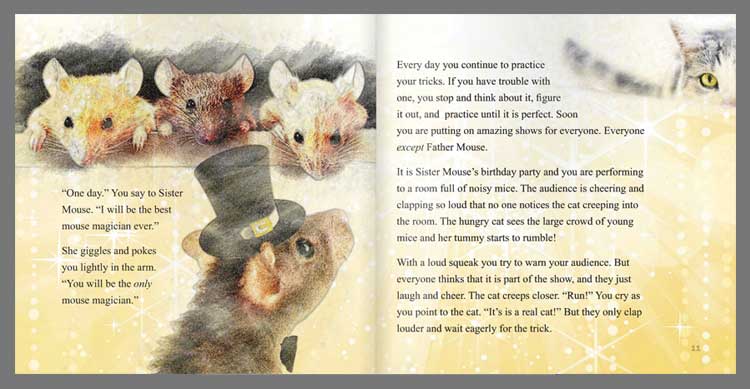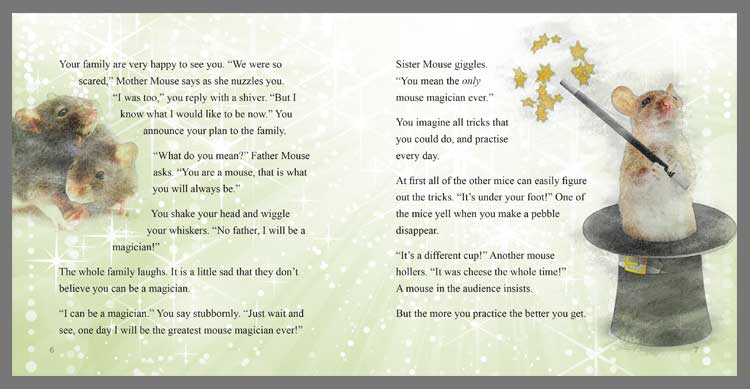Goal setting is important to your children because:
- Purpose. Having a strong sense of purpose boosts self-belief and can improve your child's confidence. It is something meaningful and worthwhile to aim for.
- Focus. Having a goal in life helps them make better decisions. Will a certain activity get them closer to a goal or detract from it?
- Motivation. It gives them motivation in life. Because the goals are meaningful and personal to your child, they’ll want to achieve them. Having goals in life gives you them motivation and the energy to keep going.
Kids who have dreams (goals) – whether sporting or academic or even personal ones – will do better in life than kids with no plan at all. So teach your children the necessity of goal setting and how to actually do it. Get interested in their interests and if appropriate, help them set their own goals to achieve.
Children are naturally great goal-setters. They just call them dreams. They see the heroic acts of Firefighters or the exciting world of the jet pilot and that's what they want to be 'when they grow up'. This is the beginnings of goal setting. As adults we should try to encourage and develop these early ideas into the powerful belief that they can go for the big idea and that it will happen if they work for it.
How can we introduce our kids to the benefits of setting and achieving goals?
To learn a new attitude or behavior we need to see it in action. We then need to witness the benefits and rewards of the new behavior. We can then act out that behavior in real life. That is the approach we have taken in 'Magic Mouse'. Imagine, for a moment, that you are a small, insignificant little mouse. In fact you are the smallest and youngest mouse in a very large family of mice. Everyone pushs you around. Out of your huge family, only your sister is on your side. One day you escape being eaten by a hungry cat and dream that you have magic powers. You dream of becoming a magician. Every day you work at your magic and every day you are told to stop being silly and act like a normal mouse. But you stick at it and the time comes when your skill and perseverence saves the whole family from disaster.
To read 'Magic Mouse' for FREE Click here
Goal setting isn’t just about jotting down some things you want done in your life. It’s much more than that! For kids, let’s make it really simple. Goal setting for kids is a process that may be set out as follows:
SET AN EASY GOAL + TAKE ACTION EACH DAY = ACHIEVE RESULT
REPEAT
Goal setting may be something new to kids, but just like brushing their teeth or studying every day, we want goal setting to be a habit for them. So since they’re just starting out, it’s important to keep in mind that the emphasis should be on the process itself, not just on the end result which is the achievement of goals. The idea with goal setting for kids is to get them started in the life-long frame of mind for thinking, planning and taking action to achieve results.
Goal setting tips
Make it easy on yourself. Start out with a simple, easily achieved Goal. Here's an example of a process which can be replicated to any level:
1) Find an easy goal which can be expressed clearly e.g. “After one month, I would have saved $15 so I can buy a Nerf Super Soaker."
2) Have your child write this on a piece of paper, you could stick a picture of the toy next to the words, and stick it up on the wall where it can be seen everyday.
3) Prepare a savings jar and have him/her calculate that they need to save 50c a day for 30 days to achieve their goal. It will help if you set aside the coins from the start.
4) Think of a special surprise for them if they manage to stick to the plan and achieve the goal.
Saving for the future is an important lesson which is not normally taught in school. There are some really helpful tips about saving and planning for the future here.
It's not just about saving money
Goals can be linked to anything. Maybe he wants to get a better grade in Math, maybe she wants to be better at hockey. Whatever the goal may be, it just needs to be as specific as possible. e.g. “I will make a maximum of five mistakes in every Math quiz in school for this first quarter,” is much better than just saying “I’d like a better grade in Math.”Your child may not always get the results he wants. It’s particularly hard when the goals concern academics or even extra-curricular activities where a lot of factors are involved. In sport, there may just be stronger and faster kids out there.
Even if she hasn’t reached her ultimate goal, she still has learned a few valuable lessons about planning and goal setting and should have noticed measurable improvements along the way. More important, she’s probably learned some things about herself.
It’s also important to tell them not to lose faith when they fail to achieve a goal. Life doesn’t always turn out as planned.
Encourage them not give up on dreams that are important to them.
If one plan doesn’t work out, revise the plan and try again, just like a mouse magician.
Thank you!

David Machin




